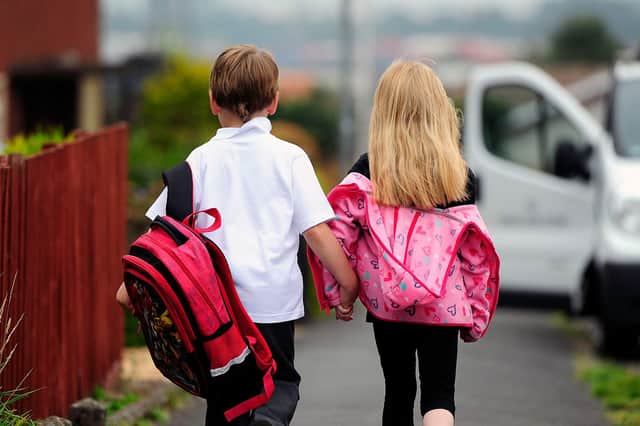Challenge Poverty Week: If Scottish Government is serious about child poverty, here's what it should do – Susan Galloway


New research by NSPCC Scotland and Barnardo’s Scotland has highlighted the level of hardship families across the country were experiencing before the pandemic began. Our investigation found growing levels of destitution over the past six years, with families struggling to get food, secure housing and heating.
Today we mark the end of Challenge Poverty Week, within which the Joseph Rowntree Foundation declared that Scotland had entered the pandemic with “unacceptable levels of poverty” and youth support charity Includem reported the crisis had hit the country’s poorest families the hardest.
Advertisement
Hide AdAdvertisement
Hide AdSevere hardship has a huge impact on mental health and family relationships. It creates social isolation and exclusion. Our research found that housing insecurity is a growing problem in some areas, creating further adversity for children.
The Scottish Government has long voiced its commitment to supporting families, acknowledging the importance of early intervention in order to prevent or mitigate negative outcomes for children.
But our new research, in which staff from family support services were interviewed, has shown a significant gap between these aspirations and the reality. Escalating need in families in recent years is being met with diminishing support, as local authority budgets tighten. This gap will only be bridged when the commitment is accompanied by sufficient resources and investment.
We were heartened when the Deputy First Minister showed the Government’s commitment to delivering on the recommendations of the Independent Care Review, with the announcement in July of a £4 million fund for local authorities for early intervention and family support. But such investment is a drop in the ocean when considering what is needed to effectively tackle the complex difficulties many families face.
The Scottish Government’s hugely welcome step of introducing the United Nations Convention on the Rights of the Child (Incorporation) (Scotland) Bill has further shown its will to improve the lives of children in the country. This should be a significant milestone in ensuring that all children in Scotland have their rights recognised, respected and fulfilled. In theory, it could transform the lives of children living in poverty in Scotland.
But change can only happen if it is accompanied by investment. Time and again, we have seen that structural and legislative change does not automatically lead to improved outcomes. Without sufficient resources, the status quo remains or, as our latest research shows, deteriorates.
The most important function of this new bill is to embed the respect for children’s rights in everything the government does, including law and policy-making, budget decision-making and service provision.
If this Government is seriously committed to transforming children’s lives then it is crucial that higher levels of public investment are shifted towards services for children and families. Because rights need resources.
Advertisement
Hide AdAdvertisement
Hide AdSusan Galloway is a senior policy researcher for NSPCC Scotland and author of Challenges from the Frontline – Revisited (NSPCC Scotland and Barnardo’s Scotland), due to be published on Tuesday.
A message from the Editor:
Thank you for reading this article on our website. While I have your attention, I also have an important request to make of you.
The dramatic events of 2020 are having a major impact on many of our advertisers – and consequently the revenue we receive. We are now more reliant than ever on you taking out a digital subscription to support our journalism.
Subscribe to scotsman.com and enjoy unlimited access to Scottish news and information online and on our app. Visit www.scotsman.com/subscriptions now to sign up.
Subscribe to the Edinburgh Evening News online and enjoy unlimited access to trusted, fact-checked news and sport from Edinburgh and the Lothians. Visit www.edinburghnews.scotsman.com/subscriptions now to sign up.
By supporting us, we are able to support you in providing trusted, fact-checked content for this website.
Joy Yates
Editorial Director
Comments
Want to join the conversation? Please or to comment on this article.